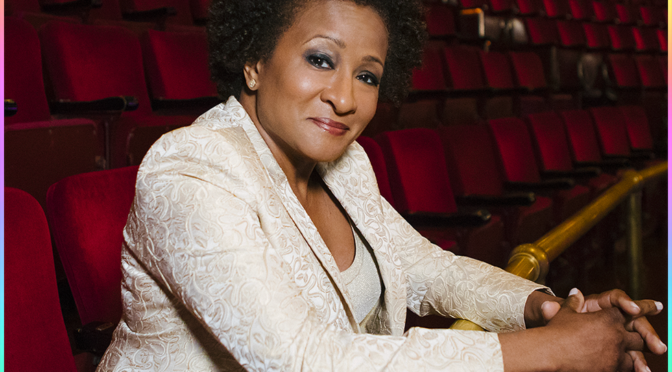“I know how powerful television can be. It’s important for us to show how important LGBTQ+ representation is and how it can change minds in society.”
Wanda Skye
Designated by peers and press alike, Wanda Sykes is “one of the funniest stand-up comics.” The Chicago Tribune calls her “remarkably endearing “ and “endlessly watchable.” And, if laughter is the best medicine, then Wanda Sykes is doing her part, and then some, to help fight the ills of ignorance and hatred that many in society have towards the LGBTQ+ community. Realizing a problem exists is the first step in changing a bad situation and Sykes uses her unique brand of comedy to bring awareness to the issues faced by LGBTQ+ people.
By most standards, Sykes’ upbringing was fairly unexceptional. Her father was a colonel in the U.S. Army, and her mother was a banker. She attended public schools and then went to Hampton University where she joined a sorority. After earning her bachelor’s degree in marketing, she worked for the federal government for five years. But the persona that Sykes was building was anything but ordinary. When she began doing stand-up comedy, it was evident she was extremely talented and witty. Her career took off and soon she was writing for and appearing in various television shows and movies.
In an effort to avoid the kind of unwanted attention that would have instantly destroyed her skyrocketing success, Sykes carefully crafted and channeled the highly original comedic entertainment that became her personal brand – “the smart, funny girl next door.” For the sake of her own survival, she “chose” to be straight and “repressed” her gay identity for years. While married to Dave Hall, a music producer, she eventually realized that in order to be truly happy she would have to be true to who she really was. She laments that coming out to her parents at forty years old didn’t go well at first. Sykes believes that her coming out was made easier by the LGBTQ+ pioneers that paved the way. She credits the extraordinary, humanizing legwork that television producer Ellen Degeneres did in the transformation of the public’s perception of the coming out process for making it easier for her family to be able to work through those issues. Today, free to be who she always wanted to be, Sykes enjoys a happy life with her wife, Alex, and her two children.
When California voters approved Proposition 8, a constitutional amendment that only permitted marriage between a man and a woman, she knew someone had to speak up and put a face to the people that were hurt by that act. Speaking at a rally hosted by the Southern Nevada LGBT Center in Las Vegas, Sykes publicly came out as lesbian. Since then she has used her voice to speak up for equality. Hosting fundraisers, appearing on talk shows, and performing comedy specials she has openly discussed issues of coming out, bullying, and discrimination against LGBTQ+ people. In a public service announcement she educates people on why saying “that’s so gay” is wrong. In her HBO special, “I’ma Be Me” she discusses the issues of being gay and black. Sykes once said, “If something stinks, I say it stinks. But I try to massage it a little and not be as cutting, come behind it with a joke: Hey, I cut you deep, but now let me put a couple of stitches in you.” While her comedic observations and anecdotes entertain audiences and make them laugh, they do it in such a non-threatening way that people actually stop and think about what is happening. Although there is still a long way to go before queer people are treated equally, Wanda Sykes is doing all she can to help achieve that goal.
“LGBTQ people have often turned to humor to get through difficult situations. By employing humor strategically, Sykes is able to reach across divides and make allies.”
Jorge Valencia, Executive Director and Chief Executive Officer of Point Foundation
